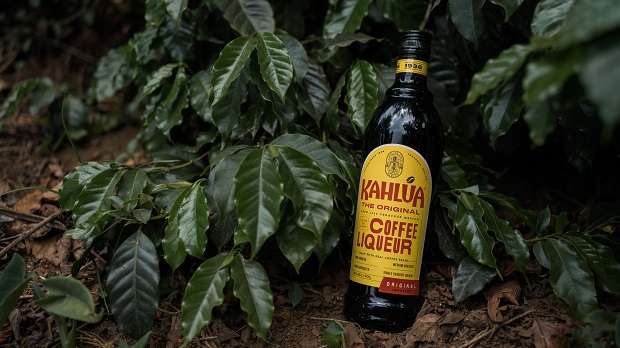Kahlúa launches blueprint for sustainable coffee programme, calling on drinks industry to review production processes
 To encourage other businesses to review their sustainability development plans, coffee liqueur maker Kahlúa has released the blueprint for its ‘Coffee for Good’ sustainability programme – which will see the brand reach a 100% sustainable coffee harvest to cover all production by November 2022.
To encourage other businesses to review their sustainability development plans, coffee liqueur maker Kahlúa has released the blueprint for its ‘Coffee for Good’ sustainability programme – which will see the brand reach a 100% sustainable coffee harvest to cover all production by November 2022.
Following six years of investment into improving the social and structural conditions within coffee farming communities in Veracruz, Mexico – the home of Kahlúa – the brand is providing a free toolkit, which they hope will encourage other businesses to create more sustainable sources of production.
The ‘Coffee For Good’ programme was launched in 2016 in partnership with Fondo Para la Paz – a local development charity that increases the wellbeing of rural, indigenous communities in Mexico. In conjunction with INIFAP (Mexican Ecological Institute) and coffee farming experts Cafecol (Cafecol.mx), Kahlúa pledged to support local coffee farmers by funding Fondo Para La Paz’s three-pronged development approach based on the needs of the communities: environmental, social and economic.
Now, thanks to the programme, 500 families, from four remote villages in the mountains of Veracruz, are now set up to harvest and sell enough coffee to cover all Kahlúa production, as well as increasing their yields of other crops to sell elsewhere and build their businesses.
Environmental
Local agroecological experts delivered training on sustainable farming techniques to hundreds of farmers – such as planting trees to get the correct amount of shade, which improves the quality of the coffee, reduces the need for fertilisers and pesticides, and fights soil erosion. As farming is passed on through generations, younger members of their families were trained in these planting techniques, too.
Farmers were also trained in coffee management, crop diversification and soil preservation. In addition, Coffee For Good focused on practical concerns, like building a network of coffee nurseries to replace aged and diseased plants, with 213,000 new coffee trees planted. Now, 90% of farmers in the Coffee For Good programme are trained in and using environmentally friendly methods of farming.
Social
The project pinpointed social cohesion, gender equality and education within the coffee-growing communities as key areas for progression. Fondo Para la Paz worked closely with farmers and their families to define shared goals.
Alongside training, for businesses to grow, basic health needs had to be met in the villages, which were previously without sanitation. Coffee For Good worked with the communities to build 214 dry toilets and 161 rainwater tanks close to houses, meaning 100% of families now have easy access to clean water. This also removed the need for the community’s women to walk to the nearest water source, with some journeys taking up to one and half hours.
Economic
Kahlúa made the commitment to pay all farmers a fair price for the coffee they produce and Fondo Para La Paz provided finance and budgeting training, which was continued by the women in the villages and applied to their businesses. However, for farms to be truly sustainable, they should not be dependent on one source of income – farmers needed a viable and sustainable business model. So, the goal was to increase long-term yields, while maintaining soil fertility and the biodiversity of the land. This was achieved by helping farmers diversify their crops by planting vanilla, plantain and maize, which they could sell locally or eat.
Looking forward
Next, the Coffee for Good programme has ambitions to extend the programme to another two villages (Popocatepec and Mitepec), as well as deepen the existing programme by implementing scholarships for young people to attend agricultural college, strengthening leadership skills for women and giving farmers access to WiFi to help grow their businesses.
Giancarlo Martins, Global Marketing Manager at Pernod Ricard says: “Kahlúa is associated with good times. But for those good times to continue, we recognised that the way we consume, do business – and ultimately live – had to change.
“So as the world’s most recognised coffee liqueur brand, we knew we had to act. We embarked on a long journey of sustainability which involved going back to the beginning – to the birthplace of Kahlúa in Veracruz.
“There are real communities at the heart of each bottle of Kahlúa, and it was incredibly important to us that everyone involved in the production feels equipped to live a fully rounded sustainable lifestyle.
“By working with Fondo Para la Paz, we’re proud of the programme that is Coffee For Good, but we’re also aware that as a brand, the goalpost is always moving. We’re always looking for the next step in our own journey.
“We hope that with our free industry toolkit, other businesses – within the drinks industry or otherwise – are able to take even a small amount of inspiration and find something that might work for them too.”
?The Coffee for Good toolkit is available to download for free on Kahlúa’s website.




Comments are closed.